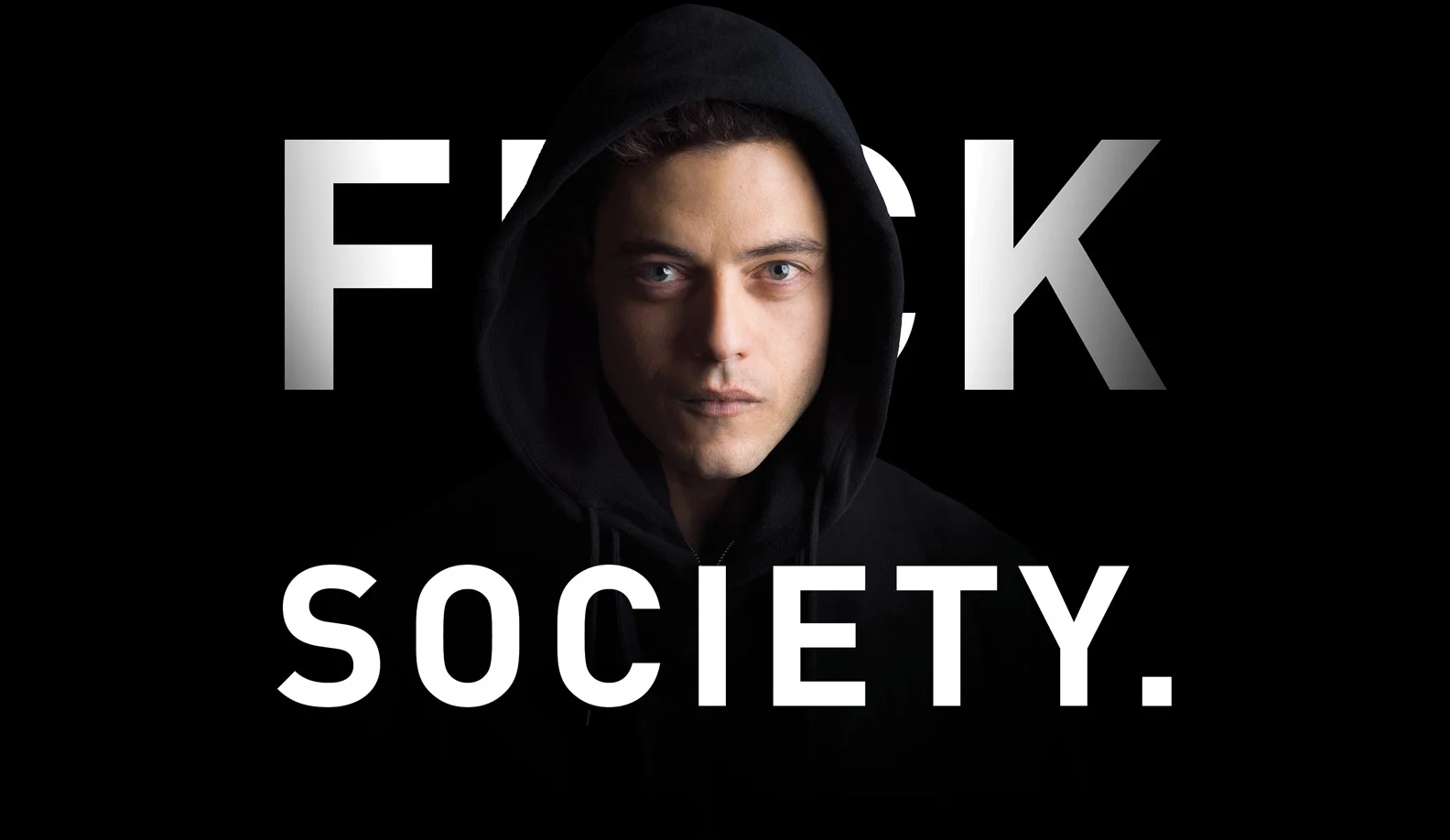Mr. Robot & People as Malware
Mr. Robot is quite the wild ride. It's difficult to even articulate it beyond that. I'll do my best, while trying to keep my scrambled brains resting nicely inside my head, below... Elliot Alderson is a security engineer for a cyber security firm by day and a hacker extraordinaire by night. He suffers from dissociative personality disorder, which we're privy to very early on in the series because we, the viewer, are Elliott's new friend. Fourth walls mean nothing, you see, when you're someone's alter. And that's one of the many magical things about this series. We star in it. He asks us for help when he needs it, repeats after us when advice is provided, and we go along all of his rides. Hacks, overdoses, withdrawals, loves, lives, deaths, delusions, and revolutions. The ones he can recall, that is.
Elliot is unquestionably mentally unstable which often results in lost time. Frustrating, yes, but also part of the magic. When we're not busy trying to figure out what we (Elliot included) have not witnessed and/or forgot, we're following Elliot's long-time friend/co-worker and their boss or his revealed-a-bit-too-late-in-the-series sister and hacker cohorts (known deliciously as "fsociety"). Honorable mention to his boss' boyfriend, who will forever be Justin Taylor whether Randy Harrison likes it or not.
Then there's Mr. Robot himself. Played by Christian Slater, he is our resident Tyler Durden in that he is somewhat subtly just another aspect of Elliot's mind. If I'm being completely honest, I didn't pick up on it until around episode two when my husband said "Yeah, he's not real." I then, of course, payed way too much attention to each subsequent episode to make sure he was right (because I wanted showrunner Sam Esmail to pull it off)/to make sure he was wrong (because I really didn't want the "Twist!" moment to be the big deal of the season). Mr. Robot seemed way too good for that. The way they did handle it, though, was quite satisfying. It was less about "Shock and awe, only one person started Fight Club" and much more about "Elliot is very, very broken." Forgetting who your sibling is and trying to make out with them will make that quite clear.
That's the general idea of the series, now that I think about it. People are broken. And in possible attempts to fix themselves, they break others. Made crystal clear by the actions of the Evil Corp employees ("E Corp" in reality, "Evil Corp" in our view of reality through Elliot's delusional eyes), which include murder, infidelity, self-imposed bisexuality, and urination voyeurism all for monetary gain. The end goal is to be part of the 1% and they succeed. Mostly. #WhereIsTyrell?
Where we leave off in season one is the percentage being meaningless. The hack of all hacks is pulled off during another of Elliot's blackouts and all debts owed by the 99% end up being erased, as well as every drop of every rainy day fund of the 1%. Or so it seems. In the final scene, we're treated to a glimpse of B.D. Wong's transwoman hacker turned business man (bound to anger actual trans people if it turns out his character is just in drag) partying in a fucking castle with the highest up of Evil Corp, drinking champagne and generally being awful. Is she working from the inside out to hack-save the world? Or is he working from the inside out to out-hack the hackers because money?
There's also an oil spill or something. Shit's real heavy, y'all.
Season two will premiere next year with everyone's favorite do-gooder/nutter still substantially crazy. Or so we hope. Otherwise, we wouldn't have our weekly acting gig through that pesky fourth wall. Until then, stay malicious.

